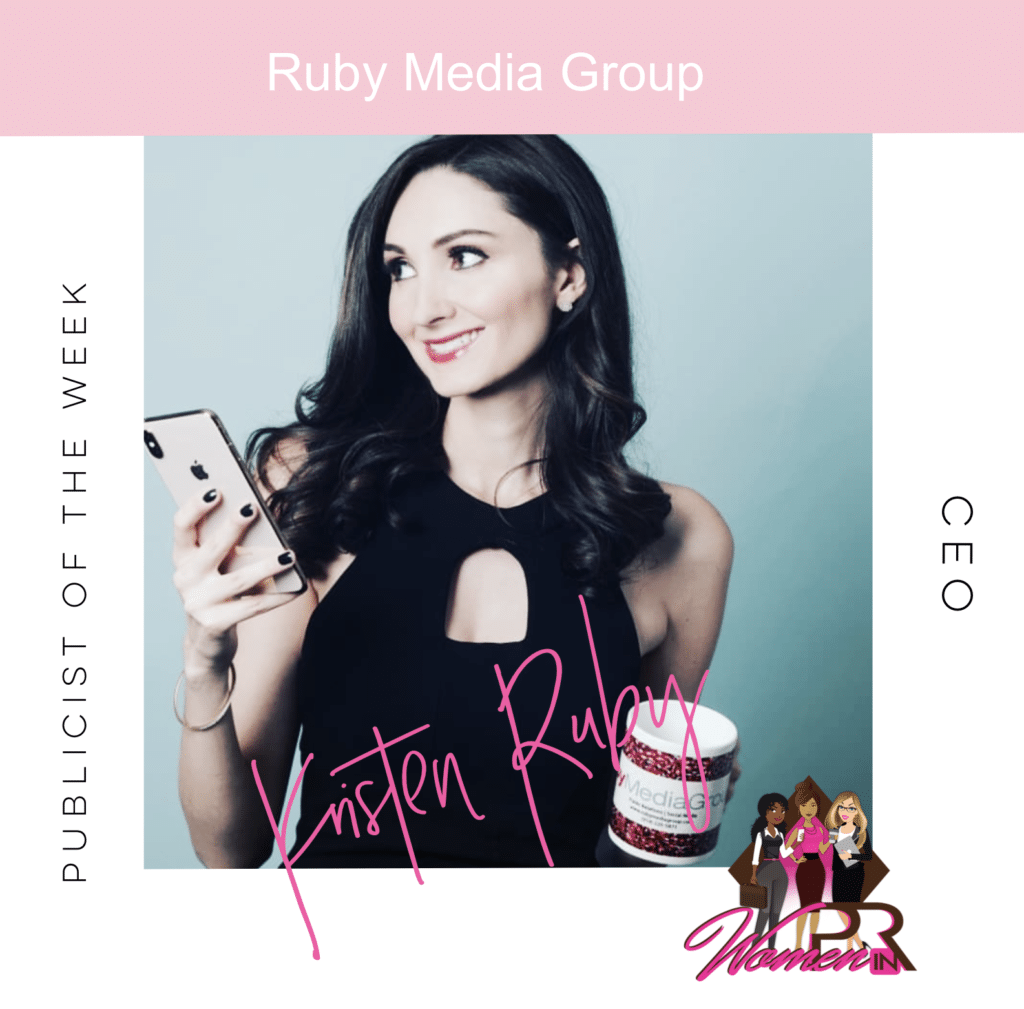
Common Misconceptions About Public Relations
What does a PR firm do?
A publicist is responsible for generating exposure for your company and brand. Publicists help define your corporate public persona by crafting story angles, pitching stories to the media, coordinating interviews with journalists, writing fact sheets and electronic press kits, keeping updated media lists, and monitoring your public image.
Additionally, publicists help to craft that image and pitch strategic messages and storylines on behalf of you and your company to the media.
However, there are many misconceptions about what publicists do and how they do it. Plus, there are misconceptions floating around about why you should hire a PR firm in the first place.
My favorite one is, “You only need to hire a PR firm during a crisis.”
That couldn’t be further from the truth!
Public Relations Myths Debunked
What are common misconceptions about Public Relations?
Here are the top 5 misconceptions you need to understand about hiring a PR firm:
PR MISCONCEPTION # 1: Publicists have a magic Rolodex.
Clients believe that their publicists have a magic Rolodex that they scroll through for booking appearances. While the traditional Rolodex has been replaced with emails, texting and media databases, the theory still remains the same. Publicists cannot email, call or text an editor and automatically get a story placed just because they have a personal relationship with them. That isn’t how real PR or journalism works. The publicist may have a very close relationship with a journalist, but if the story has no legs, there is breaking news, or the journalist simply doesn’t like the story idea, it’s not getting placed, and it doesn’t matter if you hired a Park Avenue PR firm or if you pitched the story on your own. The newsworthiness value of the story is all that matters. Breaking news dictates the storylines, and publicists pitch stories that tie into the news cycle. It is not the other way around. The media dictates what is covered- publicists do not. While it is tempting to believe publicists have access to everyone, it is not true.
PR MISCONCEPTION # 2: Publicists live a ‘Sex & The City’ lifestyle.
Another misconception is that publicists go out every night to events and are surrounded by the glitterati and a Sex and the City lifestyle. As a publicist, I spend the majority of my time in front of my computer writing, editing, pitching, and communicating with clients and the media. Every time I am at a networking event, I could be missing an important email from a journalist who may be requesting an interview with my client or needs answers to their questions within the hour. This public perception of publicists going to glamorous events every night is outdated and unrealistic. Perhaps it is true in entertainment PR where red carpet events still reign supreme. But corporate and healthcare PR? Not so much.
PR MISCONCEPTION #3: Publicists Control The Story.
A media relations rule of thumb to live by is: when in doubt, keep it out. After you are interviewed by a journalist at a print outlet, the interview is done and we can’t change what was said. Sometimes the media will have follow-up questions and you can go back and forth several times. Think carefully before shooting off a quick email or providing a sound bite with half-baked talking points. A publicist can’t take your quotes off the record. If you say something to a reporter that should have been off the record (or not said at all), we can’t fix it unless we are close with a reporter and even then, there’s no guarantee. If you don’t want something in print — don’t say it. This is why media training is so important. Additionally, don’t ask your publicist to ask the reporter to see a copy of your quote before it runs. This is not standard practice and the answer is most likely a resounding no.
PR MISCONCEPTION #4: PR is the same as advertising.
Earned media is not the same as paid media. You have to earn it for a reason. When you pay for media through advertising or digital marketing, you control the narrative. When you earn media through public relations, you do not control the narrative and neither does your publicist. A Publicist can pitch a newsworthy angle, but after you speak to a reporter, it is up to the journalist’s discretion to determine what the story is. The story they want to run may not be the story you want to be told. Remember, it is their story, not yours. You are a source that adds subject matter expertise to something they are reporting on.
PR MISCONCEPTION #5: Publicists can fix reporting errors.
Occasionally, articles are published with a source’s name spelled wrong or some other minor error. You may think, “If my publicist was any good, they could get the reporter to fix the spelling of my name!” That’s not always the case. Sometimes yes, sometimes no. If the print edition has already gone to press, nothing can be done except for a correction that will run in a future issue. Any time I have asked a reporter to fix the spelling of a client’s name in a digital article, the request ends up annoying the reporter. In the old days of journalism, everything was fact-checked several times before it was published. Today that is unfortunately no longer the case with the rapid pace of digital journalism and the increased demand for content. While some publicists may be able to get the spelling of your name corrected, it is not guaranteed. It depends on the outlet and their editorial policy with corrections, not on your publicist’s ability to get it done. Additionally, there is a difference between a reporting error and you not liking a photo that is used in an article.
PR MISCONCEPTION #6: Publicists control Google search results.
People often ask if we can change Google search results for their company or personal brand. Perhaps one bad story or review tanked their corporate reputation and they now want a publicist to fix it. A public relations program that incorporates organic earned media coverage does have the ability to alter search results. However, this is a long-term effort, and it is never guaranteed because it depends on so many outside factors including the domain authority of the sites that new coverage is secured on, and most importantly, the domain authority of the sites that the bad press is written on. Often, if those sites are ranked high, it becomes very difficult to lower the results, regardless of how many earned media placements you secure. Additionally, a digital advertising campaign and paid media would have to complement the PR efforts as part of the long-term reputation management campaign to alter search results. Publicists can make a valiant effort at getting more positive coverage for you, but the one surefire way to change search results is through Google directly (or with the help of a good attorney that specializes in defamation).
PUBLIC RELATIONS MYTHS
Myth #1: PR is no longer relevant to my business because traditional media is dead.
Fact: Traditional media is still relevant, and digital PR is a burgeoning area that not only helps your business and credibility but is also a critical ranking factor for Google’s E-A-T quality guidelines for building authority.
Myth #2: PR firms are too expensive. We can do it ourselves.
Fact: You know what is even more expensive? Trying to do PR yourself and getting sued. Plus, your time is limited. Why waste it pitching yourself when a PR pro could do it for you?
Myth #3: My last PR firm was terrible so all PR is worthless.
Fact: Maybe your last PR firm actually was terrible. But does that mean every other PR firm in perpetuity will also be terrible? No. Stop judging an entire industry because you had a bad experience.
Myth #4: We don’t have a good PR story to tell, so our results will be terrible if we hire a PR firm.
Fact: Leave that up to the magicians to determine to see if you have a good story to tell before you take yourself out of the race entirely. Your story may be better than you think if someone could properly package, pitch, and promote it for you! Hint, that is what we specialize in.
Myth #5: PR will drive thousands of sales, clicks, and leads overnight. PR will make me rich overnight.
Fact: PR is better for brand awareness. In certain circumstances, direct marketing may be better for driving new leads than PR is. Yes, I said that as a PR firm agency owner. Why? Because I want you to be an informed consumer before purchasing PR services. Also, PR will not make you rich overnight.
Myth #6: The media will accommodate my schedule. I am giving them great content. They are lucky to talk to me.
Fact: The media doesn’t work around your schedule. You will always have to move your schedule around to accommodate the press, not the other way around. The media has 100 other people who are all dying to talk to them and would love the digital ink space you are trying to get.
Myth #7: I should be paid for my time to speak with the media if I give them a quote for a story or appear in a segment.
Fact: Some people believe that they should be paid for their time to speak with the media. This is not how the media works! Any time money is exchanged, that is called paid advertising, not public relations. No one is going to pay you to answer questions or speak with reporters unless it is part of a larger agreement with a network and there is an agreement in writing.
Myth #8: The work it takes to publicize an unknown entity is the same as the work it takes to publicize a known entity.
Fact: I have a friend who is a 30-year PR veteran in the industry. The first question he asks a new prospect is, ‘Have you ever worked with a PR firm before?’ If they say no, he won’t work with them because he knows the emotional toll it will take to break someone into the industry. It is not for the faint of heart. In addition to the work it takes to turn an unknown entity into a household name, there is also constant friction over the process of what it takes to get there.
Myth #9: You don’t need direct access to my staff.
Fact: False. Publicists are typically met with objections such as, ‘Why do you need 24/7 access to me? PR is a demanding environment that is different than hiring a digital marketing firm that operates on a more traditional agency schedule. You may not hear from them after six o’clock. But when you work with a PR consultant, they may contact you at midnight, because when a reporter needs something, they need it now. PR is not just a learning curve for the client. It’s also a learning curve for everyone involved with the client, too.
“That trickles down not only with the publicist you’re working with but in all of your relationships. Even your family starts saying, why is the PR firm contacting you at midnight?”
Any key stakeholder, partner, or leadership team you have a brand touchpoint with needs to be involved in the public relations process for it to be a successful engagement. Yes, that also includes your office manager, employees, and family members, too. It is critical to have primary and secondary access to the executive through different contacts for increased levels of access.
Myth #10: Accommodate my schedule and make things easy for me. Be easygoing.
Fact: Client appeasement in PR results in loss of media coverage.
‘Why do you need the answer to this question in 30 minutes? Can’t it wait until tomorrow?’
No. It can’t. Not unless you want to lose the opportunity. The truth is, you should fire a PR firm that waits until the next day to reply to a reporter. The PR firm that doesn’t want to disturb you is a PR firm that is okay with losing opportunities for you. They may be easier to work with, but when it comes to win vs. loss ratio, they will have fewer wins because they sacrifice the wins to appease a client. At the root, the best PR firm will always do whatever is necessary to secure the placement, even if it means waking you up.
When you hire a publicist, it is disruptive to the normal flow of your life and business. There is a big adjustment period that takes getting used to and that can often last an entire year until someone is comfortable with it after all four seasons.
PR is not like ordering a Caesar salad.
You can’t just say, “I want to be in People Magazine, and order it. It doesn’t work like that.”
Fun fact: I actually did get a client a feature story in People Magazine once and featured on People TV, but I have worked with the doctor for over three years, and the story developed out of a social media relationship with the content we were putting out. Building expertise and online credibility take time. You don’t build a community or a reputation overnight.
Thought leadership is not transferable.
Just because your competitor was quoted in a story doesn’t mean you’re going to be quoted. There is more to what meets the eye with each story that is published and every article that is placed. So many factors play into a media mention and no two mentions or strategies are the same.
- How often are you publishing content?
- Are you already on the medical conference circuit as a speaker?
All of these things factor into if a reporter is going to quote you when they are ready to quote an expert.
Why is the practice of Public Relations misunderstood by the public?
Unfortunately, there is a lot of misinformation put out there by PR firms trying to close new clients on the power of PR. Yes, PR *is* powerful and can do wonders for your brand, but you need to understand what is in a publicist’s control, and what is far out of their control. It does everyone a great disservice to make claims that cannot be supported. Some of these claims include PR firms that are promising to guarantee press coverage.
If a PR firm guarantees a set amount of press placements per month, run. That is not how real journalism or PR works.
So the real answer to this question is that the practice of PR is understood by the public because the media shows an overly glamorized portrayal of what we do and because publicists guarantee all sorts of things they shouldn’t and are not held to a standard of ethics that virtually every other field is held to.
Can you imagine going to a doctor that promised to cure cancer?
Or a lawyer that promised to win your case?
So why would you ever believe a PR firm that promised to get you a set amount of placements or bookings per month?
You pay a publicist for their time, strategic insights, and work deployed on your behalf.
Results are an outcome of that time, but PR firms cannot guarantee those results simply because the stories they pitch are in the hands of editors/ producers. The only person who can control results when it comes to PR output is the media, not a PR firm. If you understand this, your expectations will be more realistic and you will be happier with the results of your campaign.

PR Key Takeaways:
PR is ideal for keeping your brand top of mind with peers and prospective clients. However, if a business relies solely on PR and media relations to generate sales, they are setting themselves up for failure.
PR is not about hiring a firm and handing them a pile of cash to push a narrative you want to be told to the media. It is about hiring a practitioner who you trust to tell the narrative that they believe will get the best traction in the media.
The Truth About Public Relations
20 things I want you to know about how public relations really works.
I have secured hundreds of thousands of media impressions for clients in local media, national media, broadcast media, and trade publications. After 15 years in the PR industry and hundreds of emails with reporters, and handling PR for clients in a number of different verticals, here is what I want you to know.
- Publicists act as the buffer between the media and clients. This is for good reason.
- We know how to deal with reporters. You don’t.
- Yes, we got a client on Rock Center with Ann Curry once. Just because that happened, doesn’t mean we can get you the exact same thing. Ann Curry no longer even works at NBC. Comparing press coverage between clients is comparing apples to oranges. No two press placements are the same.
- Stop demanding the press coverage you think you deserve. The media and market dictate what coverage you deserve. You don’t. And your PR firm doesn’t either. We can get your story to the media, but we don’t control what the media finds interesting or newsworthy.
- If you genuinely want to get more media coverage, that starts with you. Most PR firms will kill me for saying this, but the onus is on you to be more interesting. Are you publishing research studies with data the media would want to use? Do you have a robust content marketing program? Are you putting out rich content the media would want to use? Instead of asking your PR firm, “Why is the media not covering me?” Ask yourself, “How can I be more interesting to the media by being a more interesting human being and doing more in my field?”
- Have confidence in the firm you hired. If you don’t trust them to do the job, don’t work with them.
- Tell your PR firm what you want. Adequately set expectations from the get-go instead of being disappointed you didn’t get what you want. No one knows what you want unless you vocalize it at the start of the engagement, not at the end after you fire your PR firm!
- Start local and build to national. Not the other way around.
- Provide access to your top executives. What is the point of hiring a PR firm if everything you say is “that is off the record,” or if your CEO refuses to speak to reporters? Don’t ask to be on INC. 5000 but then not publicly disclose your earnings report. We must have access to key leadership to do our jobs properly. That includes you giving us all pertinent details, not only the glowing details that make you look good, or that you want to share. If you want to be in the media, you lose the choice of what gets disclosed.
- Your marketing timeline has nothing to do with your PR timeline. Stop trying to make it happen. Reporters work on their own timetable. Not on your CMOs timeline around your product launch.
- Stop with your pretend deadlines. Just because you want the story to run before you leave for Mar-A-Lago, doesn’t mean it actually will!
- Do not ask us when the story is coming out.
- Public relations takes time. If you want results in thirty days, consider paid advertising or direct marketing instead.

Top PR Firm | New York, NY | Ruby Media Group
Looking for a publicist who understands how the industry really works? Skip the line or trial and error by working with a publicist who has 15+ years of securing earned media impressions and major PR wins for clients. Plus, Ruby Media Group’s CEO was recently named “Publicist of The Week” by Women in PR. We know how to place major media impressions that convert to real results for your business. Contact us today to turn your PR dreams into reality.
PR FIRM MISCONCEPTION RESOURCES
How to spot a Fake PR Firm (VIDEO)
KRIS RUBY is the CEO of Ruby Media Group, an award-winning public relations and media relations agency in Westchester County, New York. Kris Ruby has more than 15 years of experience in the Media industry. She is a sought-after media relations strategist, content creator and public relations consultant. Kris Ruby is also a national television commentator and political pundit and she has appeared on national TV programs over 200 times covering big tech bias, politics and social media. She is a trusted media source and frequent on-air commentator on social media, tech trends and crisis communications and frequently speaks on FOX News and other TV networks. She has been featured as a published author in OBSERVER, ADWEEK, and countless other industry publications. Her research on brand activism and cancel culture is widely distributed and referenced. She graduated from Boston University’s College of Communication with a major in public relations and is a founding member of The Young Entrepreneurs Council. She is also the host of The Kris Ruby Podcast Show, a show focusing on the politics of big tech and the social media industry. Kris is focused on PR for SEO and leveraging content marketing strategies to help clients get the most out of their media coverage.
